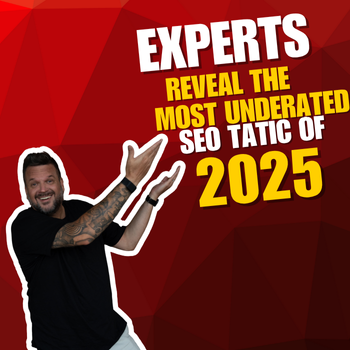Industry analysts report a steady shift in how search visibility is determined in 2025, with more weight placed on signals that show how well a brand is recognized, discussed, and trusted across the wider digital landscape. Many organizations still rely on keyword lists, technical checks, and link outreach, yet specialists note that these methods represent only part of what shapes rankings today.
Search systems now assess the level of authority a brand holds in its field, how often it appears across platforms, and whether independent sources acknowledge it. This trend has led experts to reexamine long-standing assumptions about what truly supports consistent visibility.

Spencer Hart, CEO of Genius Marketing Co., explains that one area continues to receive far less attention than its impact suggests. “One aspect of SEO that often receives less attention than it deserves is the role of overall brand presence. Clear and consistent signals about a brand’s activity and relevance help search systems better understand its credibility within the wider industry.”
Hart says search engines are getting better at detecting whether a business is active, cited, or discussed within its region or industry. Mentions in news stories, community involvement, local references, and recurring appearances in digital publications all contribute to a broader picture of credibility. Companies with these signals often rise faster in Maps results and organic listings.
This focus on external validation differs from the long-standing practice of treating SEO as a list of on-page tasks. Technical steps such as meta tags and page structure remain useful, but they rarely communicate a company’s wider reputation. Analysts note that when a brand has little recognition outside its own website, it can appear unverified even if the content is accurate. Search engines now look for signs that the rest of the internet acknowledges the business and cites it as a trusted source.
Content structure is another field gaining attention. Aaron Franklin, Head of Growth at Ylopo, observes that many teams still create isolated articles aimed at single keywords. “I believe the biggest missed opportunity is building topical authority with semantic clusters of content. Most agencies and teams are still working with individual keyword optimization methods from 2018. Google’s AI has become much better at reading the content for depth, not just keyword density.”
Franklin explains that when a site presents information in connected groups with a central theme and supporting pages, the system better understands the depth of expertise. He notes that teams producing thorough, multi-layered coverage on niche subjects often see rapid improvements because the structure helps search engines map relationships between topics.
Analysts also highlight that much of user behavior happens before purchase-ready queries appear. Yet many organizations devote most of their resources to late-stage keywords. Andreea Zorz, Head of SEO at DistantJob, describes this gap clearly. “One tactic brands still don’t leverage enough is investing in content that answers every stage of the buyer journey, not just bottom-of-funnel keywords.”
She explains that people seek explanations, comparisons, and context long before reaching a decision. When early-stage needs are not addressed, users often find answers elsewhere, and search systems pick up on that absence. Zorz notes that content aimed at early and mid-stage questions helps build trust and contributes to more stable rankings.
Taken together, expert perspectives indicate that search performance in 2025 depends less on isolated technical signals and more on credibility across multiple channels. Systems examine whether a brand is recognized in its market, whether it provides clear depth on its chosen topics, and whether it supports users throughout their decision process. SEO now reflects how well a business fits into the broader digital environment, placing authority, subject knowledge, and reliable public presence at the center of lasting visibility.
###
For more information about Genius Marketing Co, contact the company here:
Genius Marketing Co
Spencer Hart
(360) 519-5100
info@geniusmarketingco.com
13215 SE Mill Plain Blvd, Vancouver, WA 98684, United States





